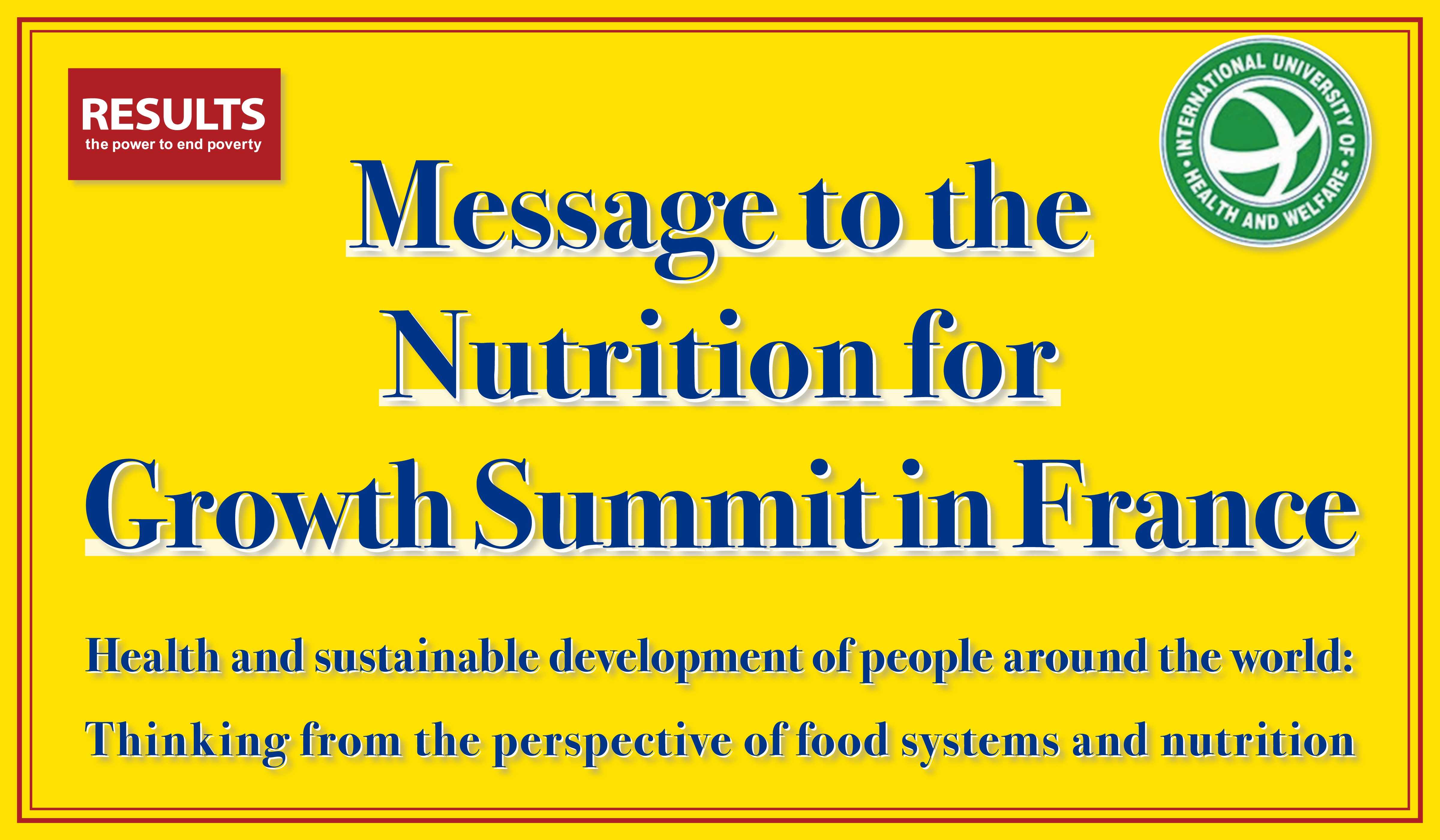Side Meetings
SMB120
N4G's New Challenge: Bridging Nutrition Divides from Tokyo to France
23
Jan
- NGO RESULTS Japan
- International University of Health and Welfare

Nutrition for Growth (N4G) is a global multi-stakeholder group that brings together governments, international organizations, businesses, civil societies, academia, etc., with the shared goals of mobilizing greater financial and political commitments to end malnutrition. This collaborative initiative was launched in response to the call by the United Kingdom’s government for increased international momentum to address malnutrition, against the backdrop of the 2012 London Olympic and Paralympic Games.
In December 2021, the Tokyo Nutrition for Growth (N4G) Summit 2021 was held under the auspices of the Government of Japan, resulting in the Tokyo Compact on Global Nutrition for Growth. This document urges the stakeholders to take further actions across the following five thematic areas: health, food, resilience, accountability, and financing. The French government officially announced that the next Summit will be hosted in France.
- Following extensive multi-stakeholder discussions worldwide subsequent to the Tokyo N4G Summit, the following key points have emerged, which demand further deliberations at the upcoming Summit in France.
Comprehensive approach to the double burden of malnutrition:
What strategies are needed to effectively address the double burden of malnutrition in diverse countries among diverse populations, and in various contexts? The next United Nations Decade of Action on Nutrition after 2026 needs to articulate these strategies.
Prevention of non-communicable diseases (NCDs):
NCDs have far-reaching consequences at the individual, community, and even nation-levels. Food and nutrition may play a critical role in preventing the emergence of NCDs.
The role of the business sector:
Can the business sector play a more proactive role in enhancing nutrition? Can a Nutrient Profiling System prevent overnutrition? The potential of educational initiatives based on consumption behavior as a means of communication will be explored.
Embracing diversity – Striking a balance between global standards and local practices:
Dietary habits are shaped by regional factors such as the environment, culture, society, and climate. To ensure that no one is left behind, universal indicators should be applied with flexibility, allowing diverse dietary practices to be reflected in the assessment of nutritional values.
School lunches – the Foundation for healthy habits:
Fostering sustainable and healthy eating habits necessitates the cultivation of a love for and interest in food from an early age. This approach impacts not only the current generation but also the parents' generation. The potential of school lunches as a powerful tool for driving social change will be explored.

